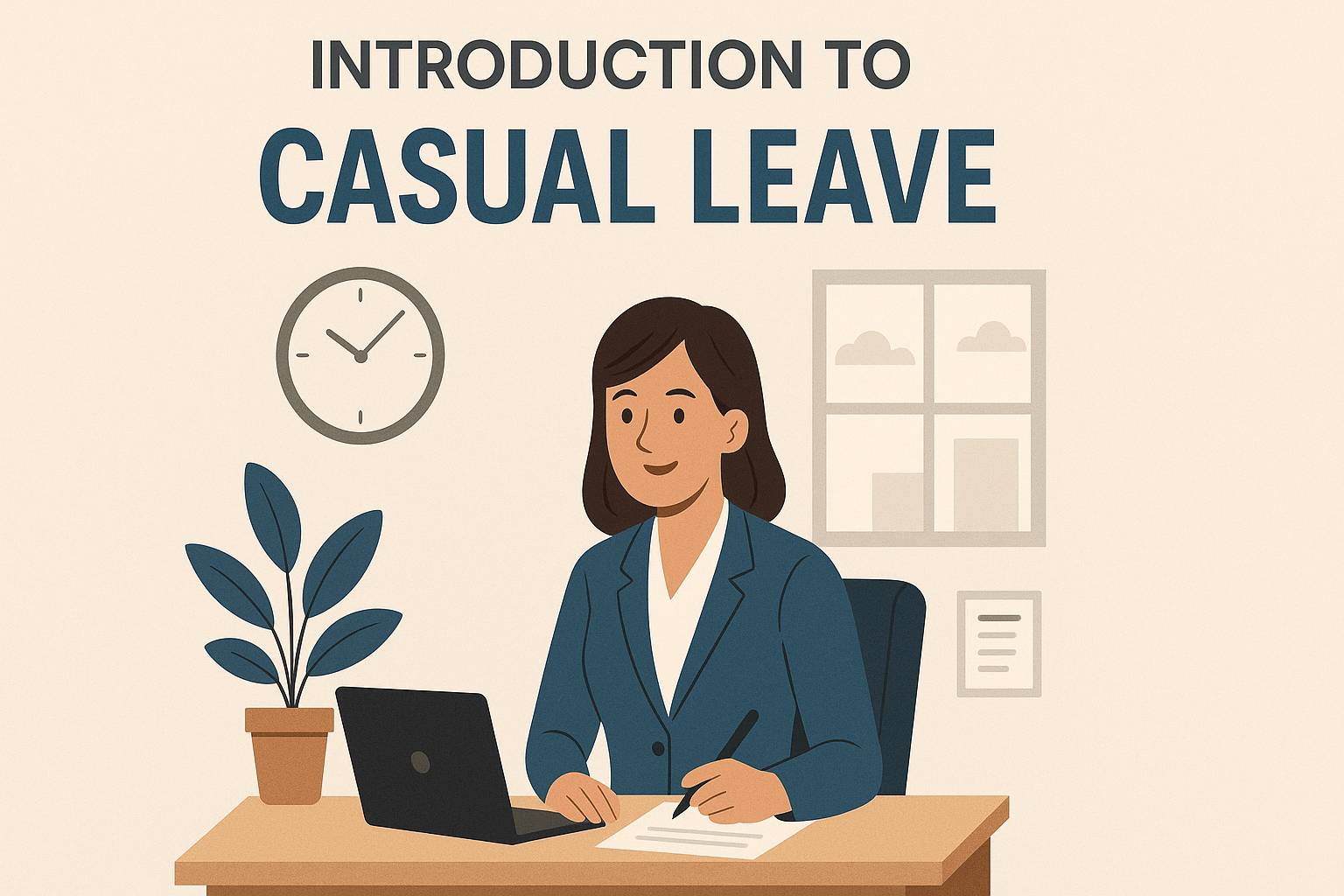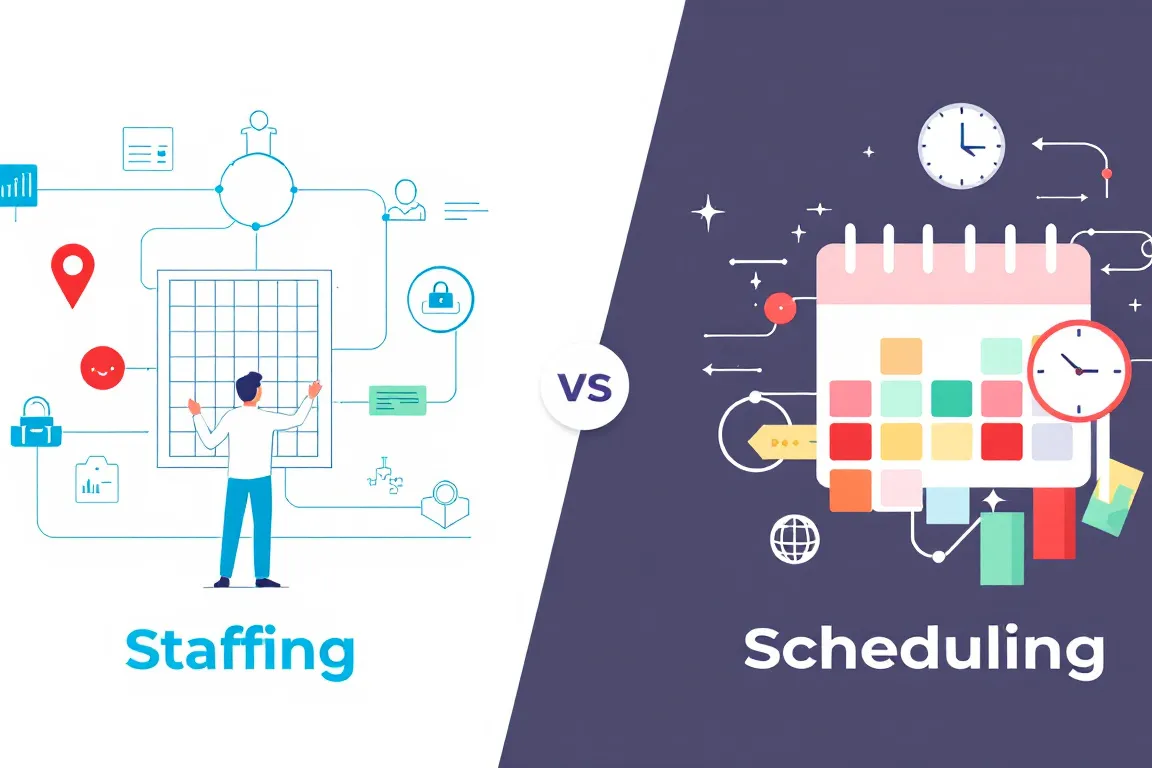Every company has its own absence policy, but usually, it can be undocumented and not clear enough for employees to follow. By implementing a leave management system, it is an opportunity to avoid issues with booking clashes and leave allowance available for staff. A holiday calendar needs to be created to avoid issues that could affect staff morale or create a hostile environment.
It should state when the event will occur, who will be absent, what preparations need to be made beforehand, and how much time off it should cover. Employees should know well about any events planned to avoid scheduling other appointments.
Once the policy has been set out, employees should be informed about what will happen if they cancel at the last minute or don’t show up. For example, a company might consider punishing those who cancel late by imposing a charge for the cost of food and drink that would have been served to them. In other cases, no-shows are less likely to be sent an invitation for future events.
Understanding Absence Management
Absence management is the process of tracking and managing employee absences to minimize the impact on business operations. Effective absence management involves understanding the reasons behind employee absences, identifying patterns, and implementing strategies to reduce absenteeism. By using absence management software, organizations can automate the process of requesting, tracking, and managing employee absences, making it more efficient and less prone to errors.
Absence management is crucial for businesses to maintain productivity, reduce costs, and ensure compliance with labor laws and regulations. It helps organizations keep track of various types of leave, such as vacation days, sick leave, and parental leave, ensuring that all absences are recorded accurately. This not only helps in planning and staffing but also in identifying trends that may indicate underlying issues within the workforce.
In summary, effective absence management is essential for maintaining a smooth workflow and ensuring that the business operates efficiently, even when employees are absent. Utilizing absence management software can significantly enhance this process, providing a centralized platform for managing all aspects of employee absences.
Tips For Creating An Absence Management Policy
To create a successful holiday calendar and avoid any problems when organising it, some important factors need to be taken into account beforehand:
The date on which the holiday falls
Any additional activities that could take place on that day
Any booking clashes with people already off during that time
Does it fall within the allotted leave allowance
A clear policy ensures that employees request time off in an organized manner, reducing the chances of booking clashes and ensuring that all requests are handled efficiently.
An absence calendar provides an immediate and clear picture of who’s away from work and why. A shared calendar allows viewing of which employees are working, on leave, and absent—all in one place.
How To Enforce The Policy For Managing Employee Absences
Enrolling a absence policy also needs to be considered to avoid any issues throughout the year and especially during the holiday season. Absence management software automates the process of requesting, tracking, and managing employee absences, replacing manual systems. Additionally, it provides a centralised platform where HR personnel can oversee and maintain accurate records of employee absences.
Using a software product can help make it clear what the policy is, how to follow it and highlighting of issues automatically with any bookings made if they go against said policy. Absence management software helps organisations to efficiently handle employee absences, such as vacation days, sick leave, parental leave and other types of time off. It also helps identify absence trends, which is useful for staffing and planning purposes.
Dealing With Different Types Of Absences Including Sickness Absence
There are many reasons why people might need to take leave, and it is essential to understand and treat these situations differently: Employee absence management involves keeping track of all types of leave including holidays, sick days, and other time off. To manage absence effectively, organizations can group employees into departments, establish minimum staffing levels, and identify potential scheduling conflicts before granting leave requests. Absence management software can log all types of employee leave, including vacation, sick leave, and unpaid leave.
The person has a valid excuse for their absence (e.g. they called to inform you in advance) – This should be treated less strictly than if this was not done
The person didn’t come to work due to personal issues, such as travel arrangements or child care. It would be wise not to take any action in this scenario
The person wanted an extra day off without consuming their allowance – Those who don’t turn up to work should then have the appropriate action against them. Systems can aid with this such as the Bradford Factor score.
Managing Employee Absences
Managing employee absences involves creating a clear leave policy, setting minimum staffing levels, and ensuring that employees understand the procedures for requesting time off. A well-defined leave policy helps prevent misunderstandings and ensures that all employees are aware of their entitlements and the process for requesting leave.
Absence management software plays a vital role in this process by helping managers approve or deny requests, track absences, and ensure that employees are not exceeding their annual leave entitlement. The software provides a centralized system where all leave requests and absences are recorded, making it easier for managers to monitor and manage employee absences.
Effective absence management requires regular monitoring of absence data to identify trends and implement strategies to reduce absenteeism. For instance, if a particular department has a high rate of sickness absence, it may indicate a need for better working conditions or additional support for employees. Managers can use absence management software to set reminders for employees to submit medical certificates, track sickness absences, and ensure compliance with labor laws.
By using absence management software, organizations can maintain minimum staffing levels, ensuring that there are always enough employees available to meet business needs. This helps prevent disruptions to operations and ensures that the business can continue to function smoothly, even when employees are on leave.
Last-Minute Cancellations, No-Shows, And Minimum Staffing Levels
It is common for some people to cancel right before work hours. A clear policy ensures that employees request absences in advance, reducing the likelihood of last-minute cancellations and no-shows. A policy that sets out how people should behave will help avoid any problems between staff members or customers who may have been informed about their leave.
Suppose there are penalties attached to cancellation at the last minute. Staff members must understand why they caused such inconvenience and be aware of what they can expect if their actions happen again. In that case, it’s essential to make sure they’re reasonable and not overstepping the boundaries of what is deemed normal in society.
No shows are those who don’t inform you, sometimes until the very last minute.
Ensure that the consequences of this type of behaviour do not take a toll on other employees and always be polite when ending them with someone – Keep the atmosphere positive.
Ensuring Compliance and Reporting
Absence management software helps organizations ensure compliance with labor laws and regulations, such as the Family and Medical Leave Act (FMLA) and the Americans with Disabilities Act (ADA). The software provides a centralized system for tracking employee absences, leave requests, and leave dates, making it easier to generate reports and ensure compliance.
Managers can use absence management software to track absence data, identify trends, and implement strategies to reduce absenteeism. The software also helps organizations maintain accurate records of employee absences, which is essential for compliance and reporting purposes. Accurate records are crucial for demonstrating compliance with labor laws and regulations during audits or inspections.
In addition to ensuring compliance, absence management software can help organizations identify patterns in employee absences, such as frequent short-term absences or extended periods of sick leave. By analyzing this data, managers can implement targeted interventions to address the underlying causes of absenteeism and improve overall employee well-being.
Overall, absence management software is an invaluable tool for ensuring compliance with labor laws, maintaining accurate records, and generating reports. It helps organizations manage employee absences more effectively, reducing the impact on business operations and ensuring that all legal requirements are met.
General Observations
The holiday season is tough enough as it is; between organising parties and buying presents, there’s barely time to spare. Traditional methods like paper forms and spreadsheets are often inefficient and prone to errors, making it difficult to manage absences effectively. Creating an effective absence policy will help avoid any problems, while setting the proper consequences for absent people will ensure they understand what they did wrong. Effective absence management means that leave policies are clear and fair to all employees. Using an absence tracker helps ensure staffing levels are adequate during absences.
It is essential to set out these rules in advance, so everyone knows what to expect when taking time off work.




